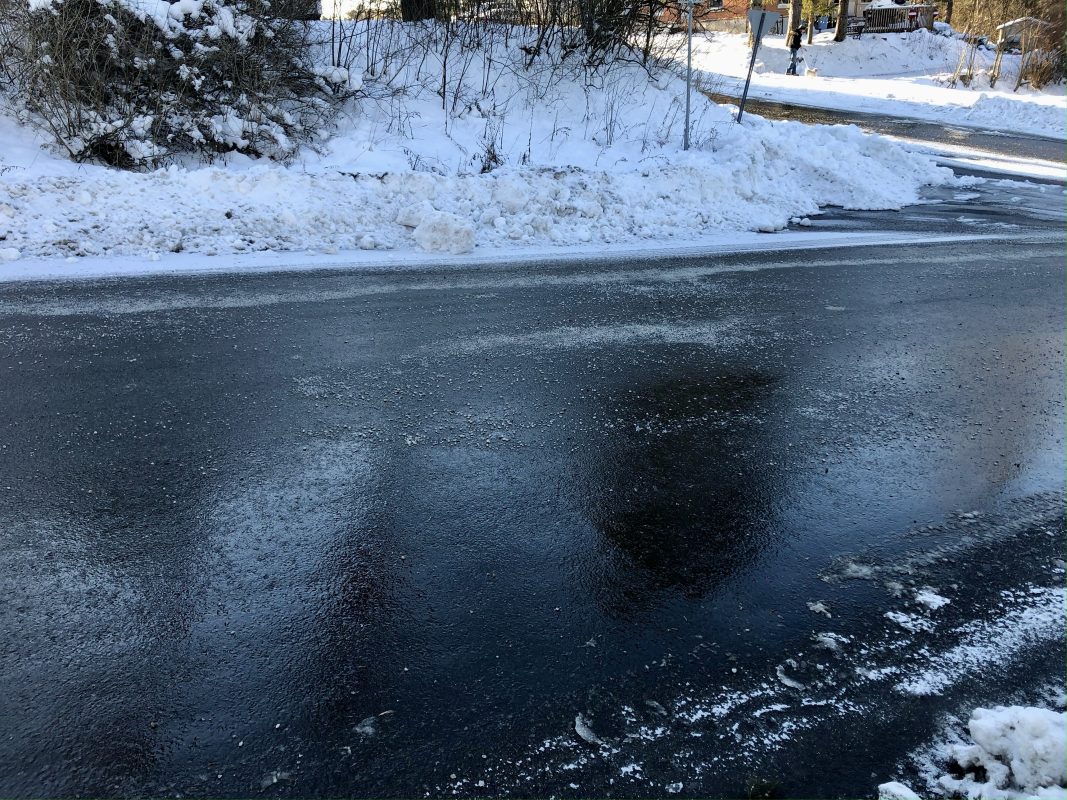Economic and environmental costs of using road salt in Muskoka are not trivial
Integrated watershed management and safe winter driving.
By Dr. Neil Hutchinson.

December arrives and we are planning for how we will adapt to this winter and wondering what kind of a winter we will have. Will it be crisp and cold with plenty of white fluffy snow or wet and rainy with periodic thaws?
Regardless, we do know it will include road salt — spread on our highways, parking lots, sidewalks and driveways. We all use road salt and benefit from its usage. But we are also increasingly aware of the damage road salt causes. The Muskoka Watershed Council is working to implement integrated watershed management (IWM) in Muskoka. Believe it or not, road salt and IWM are related.
IWM uses environmental evidence to guide the management actions we take. Our 2023 Watershed Report Card provided clear evidence that existing levels of the chloride from road salt have harmed our lakes, that concentrations are increasing, and that road salt pollution is most serious where we live, build and use roads. Data from the Dorset Environmental Science Centre show that chloride concentrations are near natural levels in the upper watershed at the Big East River and have actually decreased there since 1983. Further downstream in populated areas, however, concentrations have increased. They are now 20 times higher in Lake Muskoka at Bala and approximately 35 times higher in Gravenhurst Bay than they were in 1970.
Friends of the Muskoka Watershed has summarized scientific studies, which show that the chloride from road salt is especially harmful in the soft waters of our lakes, such that the federal guideline of 120 milligrams per litre for “safe exposure” of aquatic life does not protect sensitive species here. We should strive to keep our lakes below 10 milligrams per litre as a start, with a long-term goal to minimize any changes.
We need to continue to use road salt or a less damaging substance to maintain our roads in the winter, but we must also consider the economic and environmental costs of its use. The economic costs are not trivial — Canada’s Ecofiscal Commission cites economic and environmental damages of anywhere between $680 and $3,900 per tonne for the seven million tonnes of road salt we use nationwide each year. IWM offers a way to properly evaluate those competing needs, as it incorporates economic, environmental and social considerations.
Before we leap to the conclusion that damage caused by the use of road salt is a necessary cost for our safety, we should ask ourselves several questions and examine alternative solutions: How much road salt do we really need? Do we overapply, believing this will increase safety? Can we do a better job of measuring road and weather conditions in order to apply “as needed”? Do we really need to maintain our highways for high speeds year round? Could we achieve the same level of safety with mandatory use of winter tires? How much of our taxes are spent on road salt each year in Muskoka and are there cost savings to be had by changing how we manage winter conditions? What can we do at home? How can we get “smart about salt”? Salt is cheap and so we don’t think a lot about how much we use but did you know that it only takes one 20-ounce cup of road salt to clear 10 square metres of sidewalk or a six-metre (20-foot) driveway?
We can integrate our need to manage winter safety with environmental and economic considerations to better protect our environment and perhaps save money in the process. And we can start by asking these questions of ourselves and of our public servants.
Learn More: It’s time to go on a low (road) salt diet!

This is the third in a series of articles from Muskoka Watershed Council on “The State of Our Watershed” published on MuskokaRegion.com. Each explores environmental issues and management challenges revealed in our 2023 Muskoka Watershed Report Card. This week’s contributor is Dr. Neil Hutchinson, a retired aquatic scientist, Bracebridge resident and director, Muskoka Watershed Council, Friends of the Muskoka Watershed, and Georgian Bay Forever.
